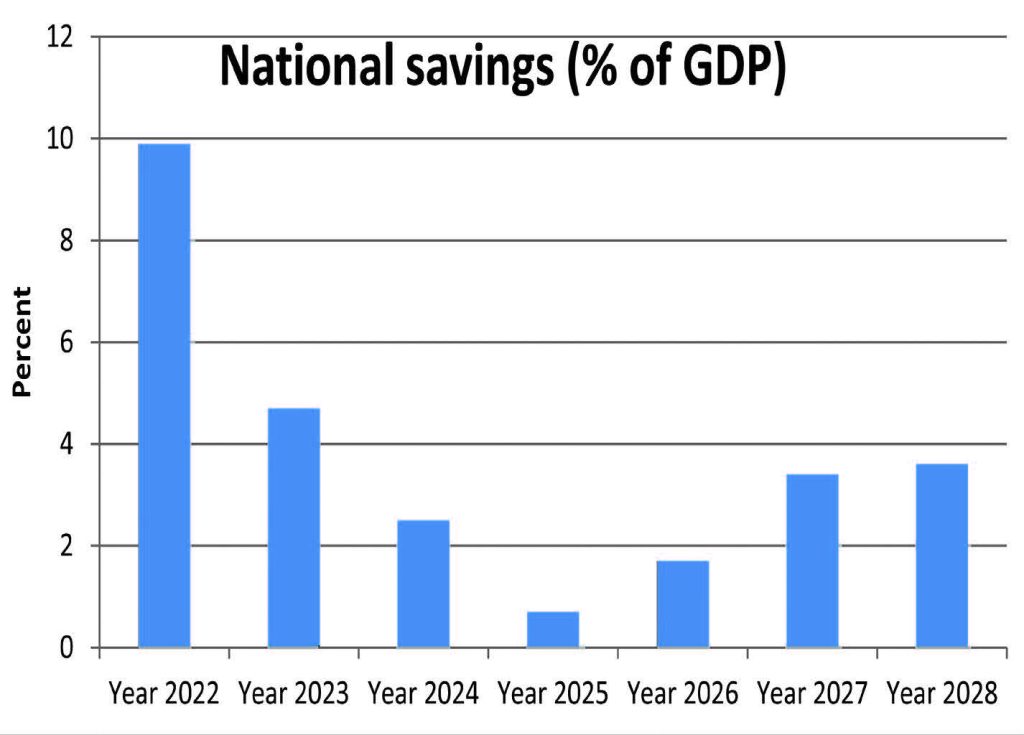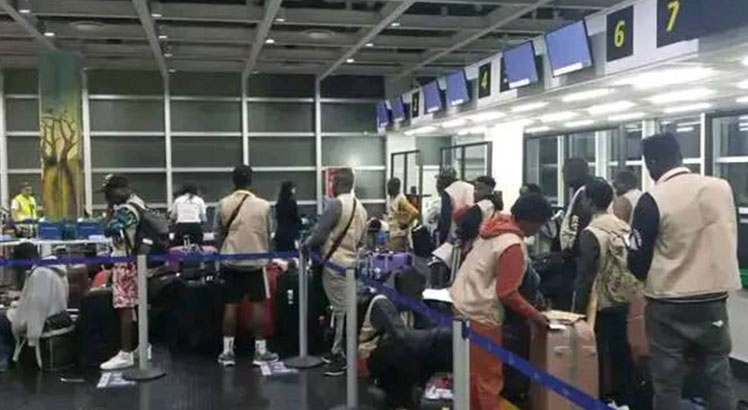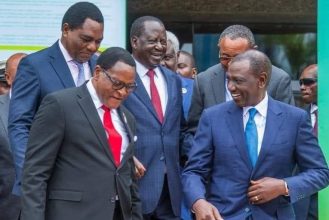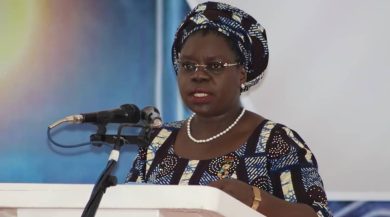National savings declining, says IMF
Malawi’s national savings as a percentage of the gross domestic product (GDP) is projected to decline in the short-term, falling from an estimated 9.9 percent in 2022 to 4.7 percent in 2023, published International Monetary Fund (IMF) data shows.
The data, contained in the IMF Country Report Number 23/299, also predicts that the national savings will slide further to 2.5 percent in 2024, 0.7 percent in 2025 before registering slight increases of 1.7 percent in 2026, 3.4 percent in 2027 and 3.6 percent in 2028.

Economists say the national savings rate is the GDP that is saved rather than spent in an economy and it is an indicator of a nation’s health as it shows trends in savings, which lead to investments.
The drop in savings rate portrays reduced investment for the future, which also reduces growth of output, wages and living standards, according to the economists.
In a written response on Tuesday, economist Gilbert Kachamba said while declining levels of national savings can have several implications on the economy, for Malawians, it could be a huge concern.
He said while a lower savings rate might hinder the country’s ability to invest in critical sectors such as infrastructure, education and healthcare, it can also make the economy more vulnerable to external shocks as there might be fewer buffers to absorb economic downturns.
Said Kachamba: “Declining levels of national savings can lead to reduced funds available for investment, which in turn can slow down economic growth and limit job creation.
“Additionally, a lower savings rate may lead to higher dependence on foreign borrowing, potentially increasing the country’s external debt.”
In a separate interview, Economist Bond Mtembezeka said the implication is that all factors being equal, there would be a decline in the level of investment in the economy as savings translate into capital formation.
“If savings decline, seekers of capital for investment will find it hard to access cheap and healthy levels of capital for investment,” he said.
A World Bank analysis recently showed that there is a significant degree of uncertainty surrounding the country’s economic prospects, including prolonged foreign exchange shortages, setbacks in the ongoing negotiations for external debt restructuring and the materialisation of rollover risk from short-term swaps, which the bank said could potentially impede a recovery of the economy and exacerbate poverty.
This, the bank said, is in addition to a surge in corporate bankruptcies, financial stress, delays in the Affordable Inputs Programme implementation and reform process.
Currently, forex shortage remains acute with Reserve Bank of Malawi data showing a 50 percent decline in gross reserves from $388 million in May 2022 to $195 million in May 2023, equivalent to around 0.8 months of import cover; short of the recommended adequacy level of 3.9 months of import cover for a credit-constrained economy.
To tame elevated debt vulnerabilities, Treasury is banking on a successful external debt restructuring negotiation with commercial and bilateral creditors to enable financing assurances.
If successful, this could pave the way for a sustainable debt path and enable the country to qualify for a full IMF programme supported by an extended credit facility.
Currently, Malawi has embarked on a journey to become an upper middle income economy by 2063 and achieve most of the United Nations Sustainable Development Goals targets by 2030.
In an interview on Tuesday, National Planning Commission director for development planning Grace Kumchulesi observed that if savings are declining, there will be low investment, thereby affecting production and livelihoods.
She said to raise the national savings rate, more emphasis should be placed on productive sectors, observing that these are the sectors that have potential for to grow the economy.
“We remain optimistic that if we remove the impediments to both savings and investment, we should still be on track,” said Kumchulesi.






One Comment